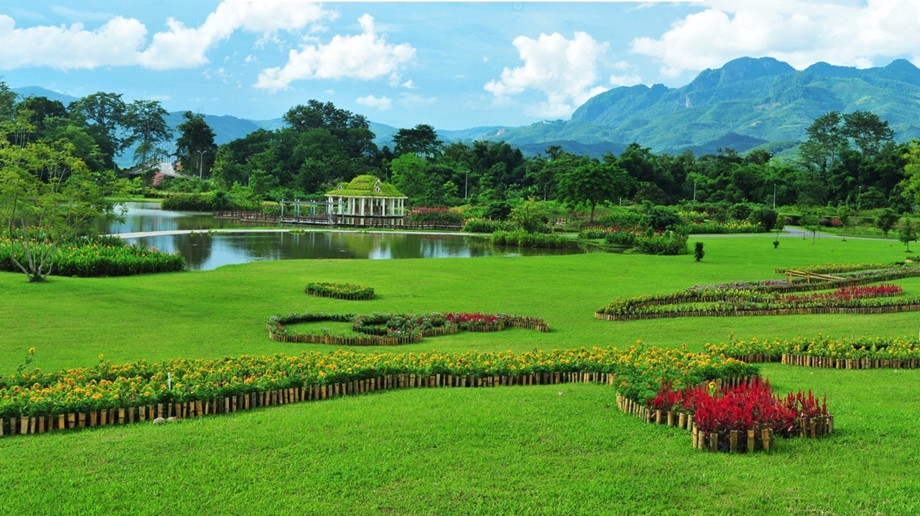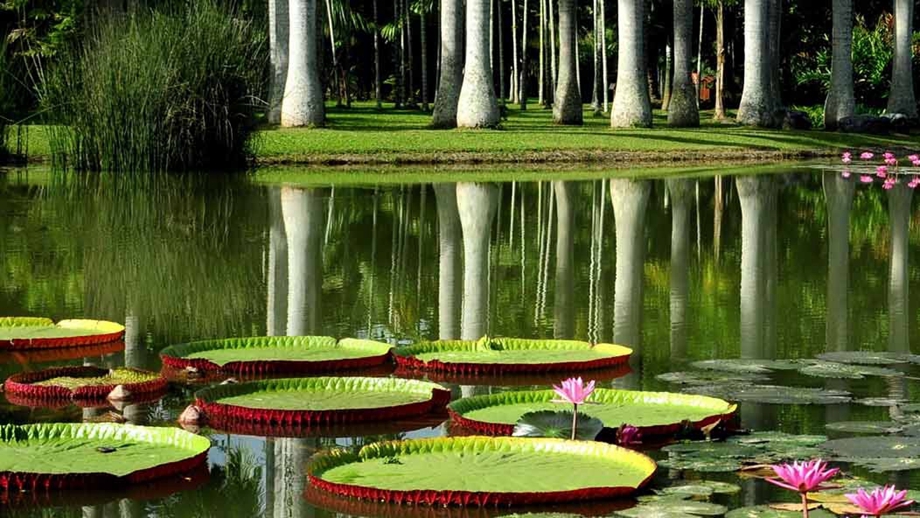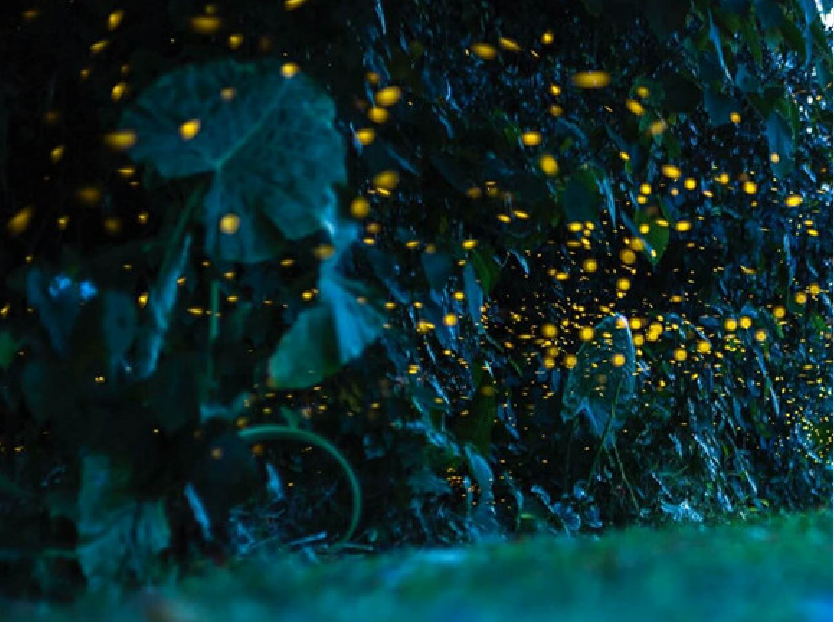XTBG: A romantic dip into nature

Thanks to favorable conditions in geography and climate, the Xishuangbanna Tropical Botanical Garden (XTBG) of Chinese Academy of Sciences is rich in plant and animal resources in the tropical rainforest. Using its biodiversity, the XTBG has carried out academic tours and scientific tourist activities, of which the “botanical garden night tour” is the most popular.
At 8:30 pm, Yi Bofeng, a XTBG tour guide, was leading a night-tour group into the garden. Strolling on the winding paths, the visitors were greeted by chirping insects and croaking frogs. They played a rainforest symphony for the guests.

Not far away in the grass, a cluster of shining dots drew attention from the tourists. “From late May to mid June, we have the largest number of glowworms in the XTBG, and when flying all over the sky, the continuous shinning dots form something like a milky way,” said Yi Bofeng. “The worms emit glow to share information or show affection. The male worm with two shiners is quite visible, and looking around, he is eagerly looking for his love. What a moving scene it is at summer night!” Yi’s words enlightened the visitors, who took out their cell phones for groups pictures. Among them, Ms. Zhang from Nanjing spoke highly of the night tour: “I took my child to Yunnan for fun, but he also learnt something about nature. It’s perfect.”

During the 2-hour night tour, Yi Bofeng led the tourists to the singer frog with a buccal cavity, the camouflaged stick-insect, and a water lily leaf that can carry the weight of an adult person. The activities allowed the visitors sink deep into the nature, enriching their travel experiences.
The night tour epitomizes the XTBG’s effort in fusing biodiversity into tourism. Now, the garden has grown to be an ideal place for study tours, inviting in over 800,000 visitors a year. And its activities in popularizing science are greatly favored by primary and secondary students across China. They include “the scientific exploring camp”, “the nature-note competition” and “the bird-watching club”.

Writing by Duan Jianxin, Chen Chuangye and Zhou Liang; trans-editing by Wang Shixue